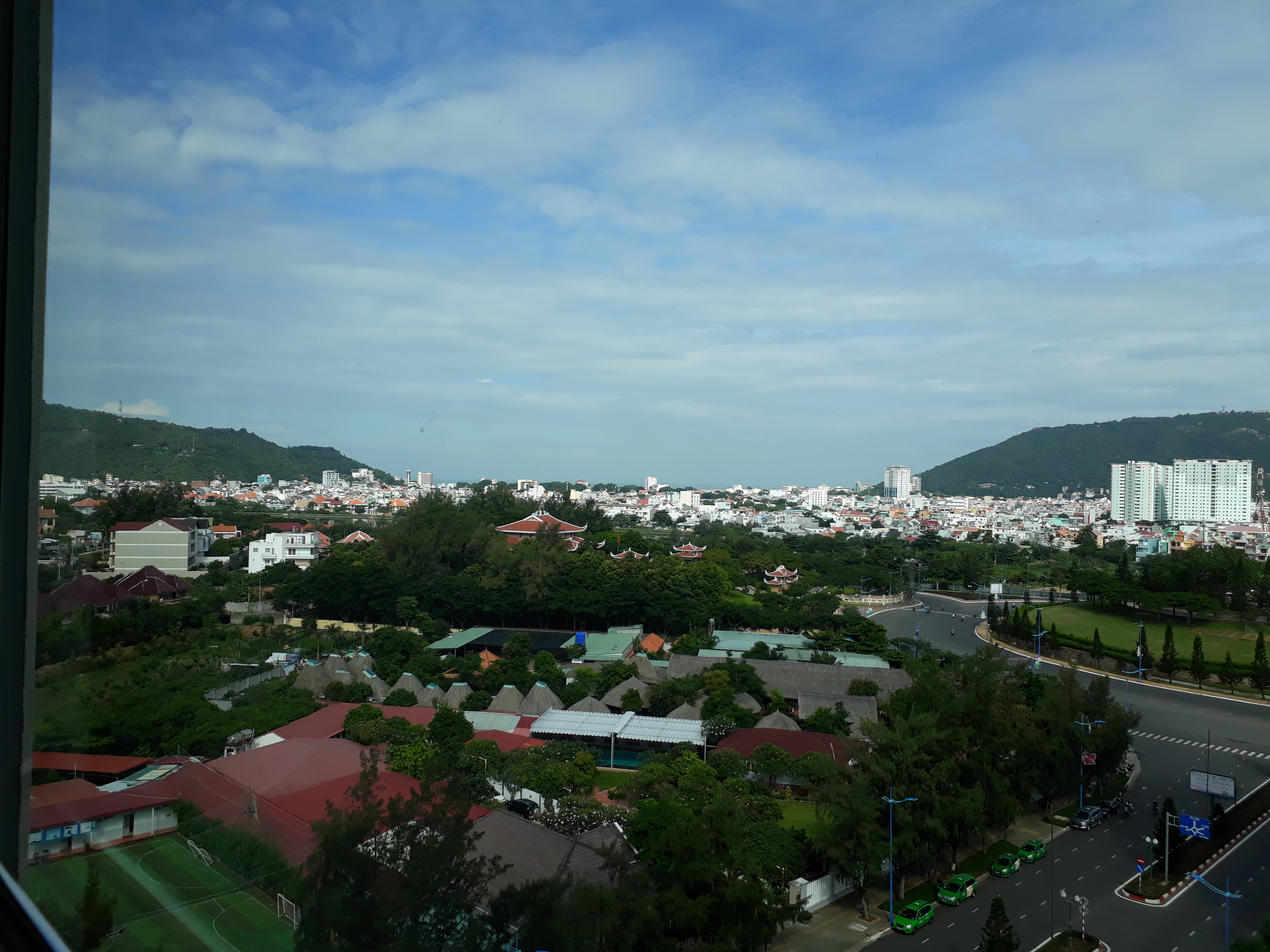Ba Ria-Vung Tau resort property market largely untapped
 |
| The province is currently home to a few large-scale resort property projects, in contrast with its huge development potential |
To date, Ba Ria-Vung Tau has licensed 79 resort projects, dotting the coastline from the city of Vung Tau all the way to Xuyen Moc district, according to the province’s Department of Planning and Investment.
These projects cover an area of more than 2,350 hectares and have brought in VND248.6 trillion ($11.3 billion) in total registered capital.
Twenty-three projects have been put into operation on 466 hectares and are valued at VND158.4 trillion ($7.2 billion). 26 projects are currently under construction, using 491 hectares of land, with a total registered capital of VND9.18 trillion ($417.27 million).
Many projects included in the tally have yet to be implemented, despite having already received investment certificates—in some cases more than a decade ago. The most notorious of these delayed projects is the VND90-trillion ($4.1 billion) Saigon Atlantis Hotel by US developer Winvest Investment Limited.
Licensed in April 2006, the project covers 307 hectares in the city of Vung Tau and encompasses a high-end mixed-development, including villas, a hotel complex, a casino, a golf course, a marina, an international convention hall, an exhibition centre, and more.
After over 11 years, however, the project remains a vacant lot.
Next to the project site is a space that belongs to the VND94.6-billion ($4.3 million) Thai Duong trade centre, covering 12,000 square metres, developed by Thai Duong Entertainment and Tourism Co., Ltd.
The project has faced delays due to impediments in site clearance and compensation.
According to statistics from the Ba Ria-Vung Tau Department of Culture, Sports and Tourism, the province welcomed about 16.8 million visitors last year, an 8.4 per cent jump on-year, which generated VND2.18 trillion ($99.4 million) in tourism revenue. Of the total, VND599 billion ($27.2 million) came from travel services, while VND1.58 trillion ($72.2 million) came from residential services.
The figures attest to the province’s promising prospects for tourism property development.
In a recent visit to Ba Ria-Vung Tau by VIR reporters, it was apparent that the province’s resort property segment was fairly tranquil in comparison to the bustling Nha Trang and Phan Thiet—both cities located near the province.
Nha Trang and Phan Thiet have many resort property and entertainment projects in the pipeline, many of which are either completed or under intensive construction.
Nguyen Long Anh Thu, CEO of realty brokerage firm Nguyen Long Real, commented that resort property projects in the province are poorly designed and are not very appealing to visitors.
Besides, local resort properties are allegedly overpriced compared to those in other coastal cities like Danang, Nha Trang, Cam Ranh or Phan Thiet.
A source from DIC, a real estate firm in Vung Tau, said speculation was one of the reasons why the provincial real estate market fell below expectations.
In the past, several businesses purchased prime land plots to begin development plans. However, when the property market dipped during the global financial crisis of 2008-2014, these firms were drained of capital and could not carry out their projects.
In a recent workshop reviewing the management and development of provincial resort properties during 2017-2020 with a vision towards 2030, Chairman of the Ba Ria-Vung Tau People’s Committee Nguyen Van Trinh stressed the benefits these properties could bring to the province and acknowledged the shortcomings that are holding back the development of the segment.
Trinh said that while waiting for the government to enact regulations on the management and development of condotel projects, the province has looked at neighbouring locations’ rules regarding this form of property management, compiling the ‘backbone’ of management criteria.
For instance, planning will be centralised, and relevant work on granting certificates and contracts or collecting land rent will be clearly regulated to ensure benefits for customers and businesses.
Land rental fees will also be further reduced in an attempt to attract investors.
What the stars mean:
★ Poor ★ ★ Promising ★★★ Good ★★★★ Very good ★★★★★ Exceptional
Latest News
More News
- Vietnam breaks into Top 10 countries and regions for LEED outside the US (February 05, 2026 | 17:56)
- Fairmont opens first Vietnam property in Hanoi (February 04, 2026 | 16:09)
- Real estate investment trusts pivotal for long-term success (February 02, 2026 | 11:09)
- Dong Nai experiences shifting expectations and new industrial cycle (January 28, 2026 | 09:00)
- An Phat 5 Industrial Park targets ESG-driven investors in Hai Phong (January 26, 2026 | 08:30)
- Decree opens incentives for green urban development (January 24, 2026 | 11:18)
- Public investment is reshaping real estate’s role in Vietnam (January 21, 2026 | 10:04)
- Ho Chi Minh City seeks investor to revive Binh Quoi–Thanh Da project (January 19, 2026 | 11:58)
- Sun Group launches construction of Rach Chiec sports complex (January 16, 2026 | 16:17)
- CEO Group breaks ground on first industrial park in Haiphong Free Trade Zone (January 15, 2026 | 15:47)

















 Mobile Version
Mobile Version